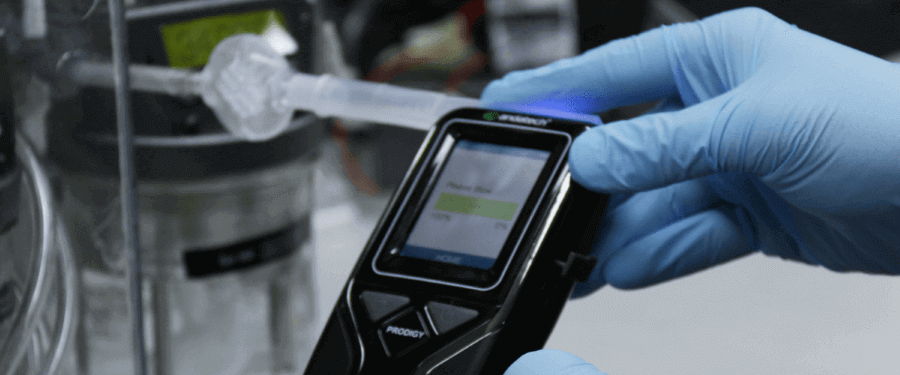Just like all other measuring tools, breathalysers or alcohol testers will require calibration over time as using the device can cause sensor drift.
In this blog post, we'll explain what is calibration, how it's done, its importance, and more.
What is breathalyser calibration?
Breathalyser calibration is the important process of configuring breathalysers or alcohol measuring devices so it can detect alcohol accurately. It is of higher importance if the device is used in employment, legal or medical procedures as a false result can lead to more severe reperucssions.
Breathalyser calibration is done to make sure that the results produced are accurate and precise at all times. As the breath alcohol concentration of an employee will determine whether they have passed workplace screening, it is crucial to perform regular calibrations on breathalysers so that proper action can be taken based on the alcohol and drug testing policy of your company.
What happens during breathalyser calibration?
During breathalyser calibration, the breathalyser in question will be tested using a breath alcohol simulator where a simulated exhaled air sample with a known concentration of alcohol will be blown into the breathalyser. The reading shown should match the known concentration within the maximum permissible errors to confirm its accuracy.
Be it a portable breathalyser or a wall mounted breathalyser, the best way to check its reliability is by calibration.
These are several reasons for sensor drift where the breathalyser becomes less accurate over time:
- Built-up impurities on the breathalyser sensor.
- Improper storage of the breathalyser under unfavourable conditions, such as high temperature and high humidity.
- Usage or storage of the breathalyser in an environment where products containing alcohol, such as hand sanitisers and cleaning sprays, are regularly used.
- Improper handling of the breathalyser; damages incurred from accidental dropping and shock.
- Improper usage of the breathalyser, such as when a test was done right after alcohol was consumed, causing a high level of alcohol to be blown into the breathalyser.
Breathalyser calibration in a nut shell
The breathalyser calibration process can be summarised in 3 steps:
- Measure the simulated exhaled air with a known concentration of alcohol and take down the reading.
- Turn on the calibration mode of the breathalyser and measure the simulated exhaled air again. The accuracy of the breathalyser will be adjusted should there be a sensor drift. This step may vary according to the breathalyser model.
- Repeat step 1 to verify that the breathalyser reading is accurate.
These steps may be repeated several times if required. Calibration is essential as it determines whether the breathalyser sensor is faulty, in which case it would have to be sent for repairs or be replaced entirely.
Depending on the manufacturer of the breathalysers, some breathalysers require passcodes to access their calibration mode; hence, you would need to send the breathalysers to their authorised calibration centre for calibration.
How often should I calibrate my breathalyser?
You should calibrate your breathalyser every 12 months if it's an Andatech breathalyser.
However, the frequency of breathalyser calibration is determined based on manufacturer guidelines and frequency of use. As a general rule of thumb, the more frequent the breathalysers are used, the more frequently they should be calibrated.
The Australian Standard AS3547:2019 requires breathalysers to maintain their accuracy for at least 6 months after each calibration. To ensure that this requirement is met, breathalysers should be calibrated according to the manufacturers’ advice.
As specific skills and equipment are needed for breathalyser calibration, it should only be done by professional technicians. A calibration report or certificate will be issued by the calibration centre after calibration is done as proof that the breathalysers have been calibrated and can perform optimally. Breathalyser calibration is not an optional process. It should be done regularly to ensure reliable breath alcohol testing data, which in turn allows for the proper execution of your company’s alcohol and drug testing policy.
Andatech offers accurate breathalyser calibration services in its NATA accredited laboratory in Melbourne.
How much does breathalyser calibration cost?
One off calibrations at Andatech are priced at $49.50 excluding shipping fees. Andatech also offers calibration plans from as low as $99 a year, which covers two calibrations a year which includes a calibration certificate and other freebies where applicable.





